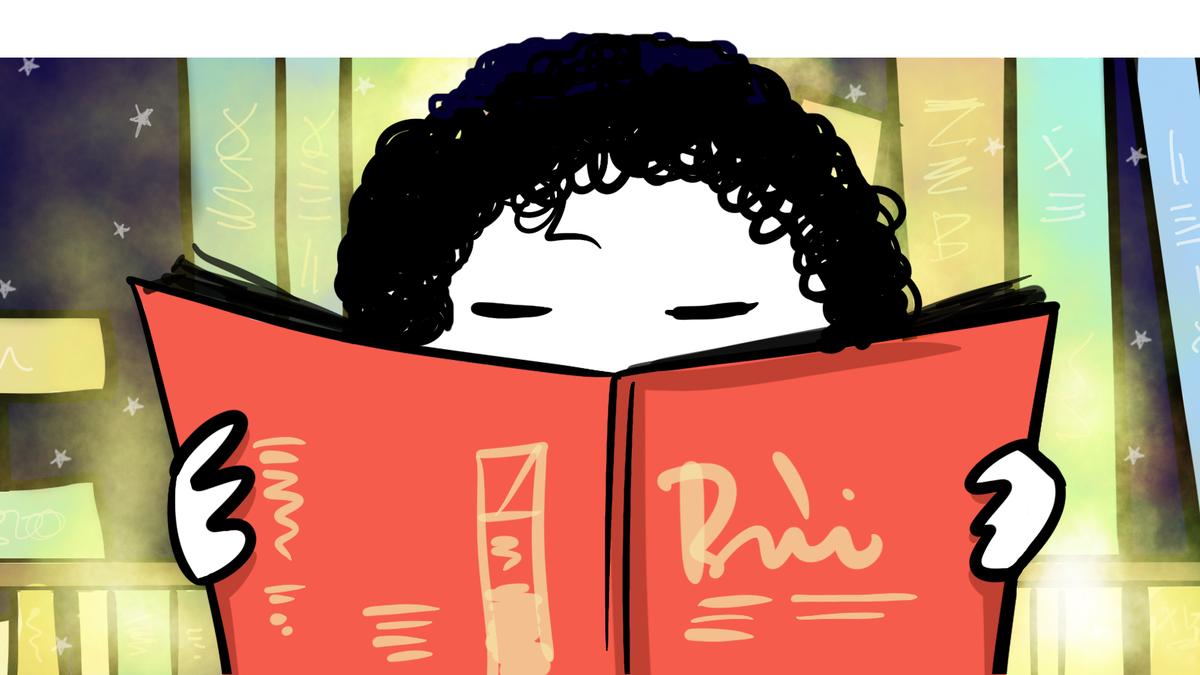
Libraries play a crucial role in enriching knowledge and shaping character.
| Photo Credit: SREEJITH R. KUMAR
Back in the late 1970s, our small town was proud to have a fairly large government-run public library. Nestled in one corner of our school premises, it operated from eight in the morning until eight in the evening, with a four-hour break in between. The library was presided over by a highly respected librarian — a reserved Gandhian in his mid-fifties, always dressed in a neatly pressed white kurta and dhoti.
Whenever he had free time, he would be found deeply engrossed in a book at his desk. Periodically, he would rise and patrol the aisles, as if invigilating an examination. Even the faintest whispers seemed to catch his attention, so we children were compelled to maintain absolute silence — quite an unnatural state for us.
The adults, absorbed in newspapers and magazines, had little inclination for conversation, so the library was naturally quiet. We school-aged boys, often sent by our parents to the library, struggled to keep still and silent. Sometimes, we were tasked with borrowing books on our parents’ behalf, armed with a small chit listing the titles to be borrowed or returned.
My friends and I used to feel as though we were being punished whenever our parents insisted that we spend weekends or holidays at the library. They wanted us there for obvious reasons, but at that age, we would have much preferred the playground. Skipping the library was not an option, as we feared the librarian or his assistant would report our absence to our parents — or even to the school headmaster.
At times, it seemed the librarian and his assistant took their roles a bit too seriously; even the slightest noise would earn us a stern glare. Occasionally, we forgot ourselves and spoke a little too loudly, much to their annoyance and that of the other readers. Being young, we were easily distracted, especially when tasked with reading biographies of great men, hand-picked by the librarian.
The library itself was spacious but appeared cramped, with gunny sacks stuffed under the benches — some containing new arrivals, others books destined for disposal. The walls were adorned with portraits of freedom fighters and intellectuals, lending the place an air of sanctity. I sometimes imagined the figures in those portraits would frown upon me if I wasted time there; my innocent mind nurtured its own peculiar fears.
As I graduated from primary to high school, I began visiting the library of my own accord. By then, it had become a joyful habit, thanks to the encouragement of my parents and the librarian. My respect for the librarian and his assistant grew — not out of fear, as before, but from genuine admiration. When I discussed books with them, their passion and insights inspired me. It was there that I learned never to let go of the joy of reading.
The specific books recommended by the librarian that changed my reading habits were primarily biographies of great men. These selections, though challenging at first, gradually drew me into the world of reading and helped me develop a lasting appreciation for literature. The librarian’s choices exposed me to stories of resilience, leadership, and moral courage, which not only broadened my perspective but also instilled in me the discipline and curiosity essential for lifelong learning.
The library and its staff played a crucial role in enriching my knowledge and shaping my character. Today, I can say with conviction that I revere a library as much as a place of worship.
Published – May 25, 2025 04:45 am IST
